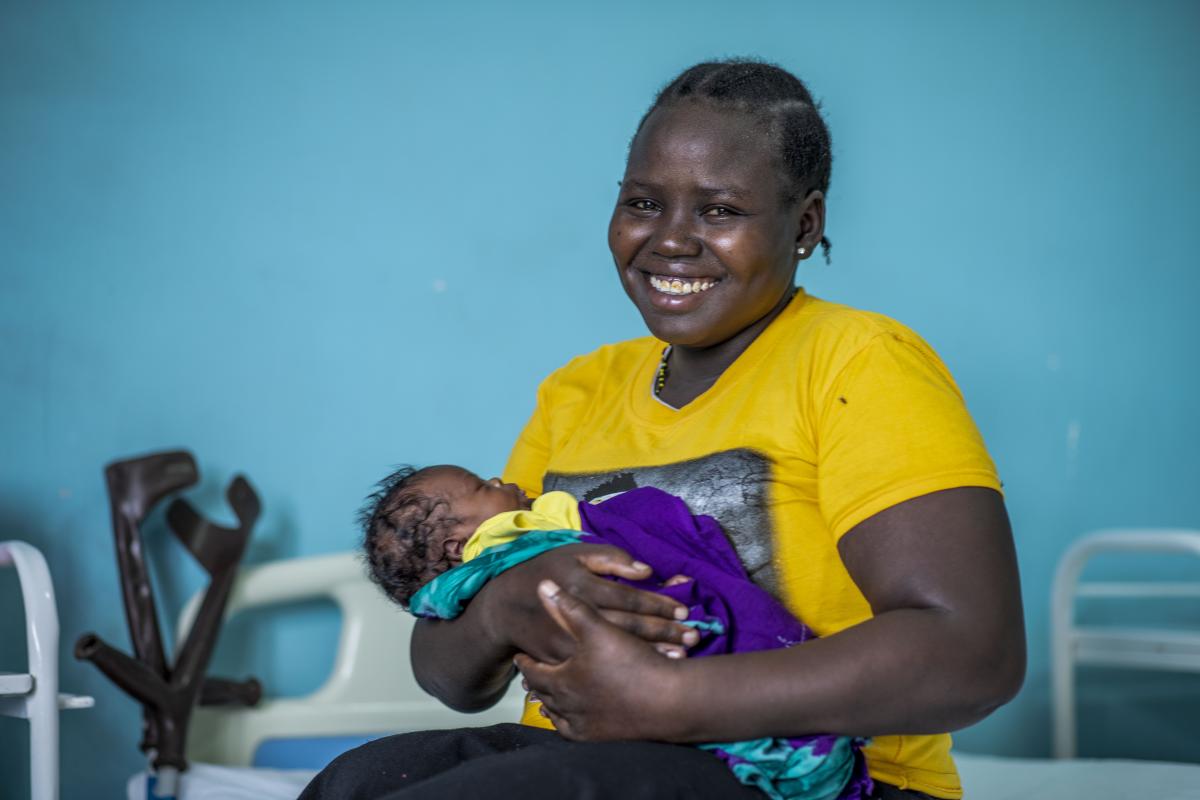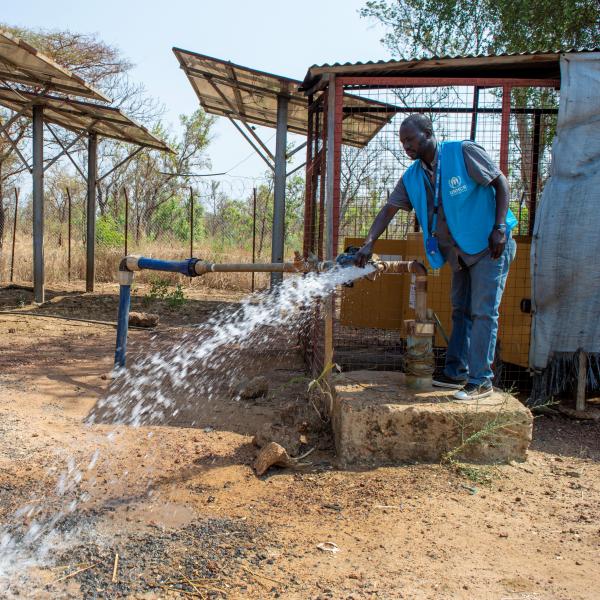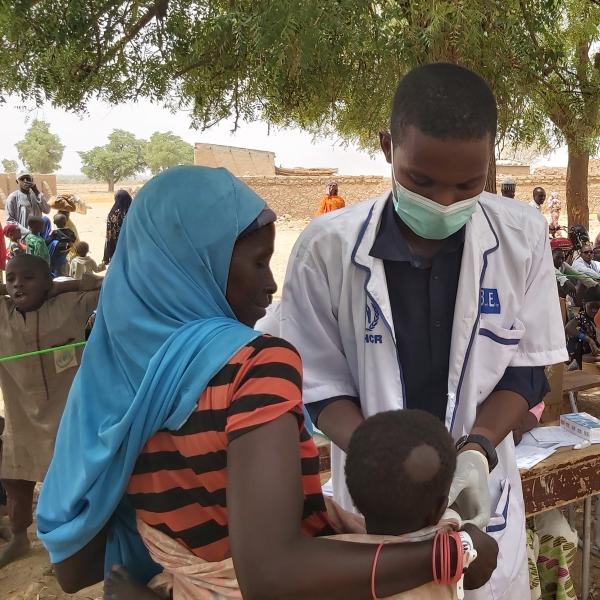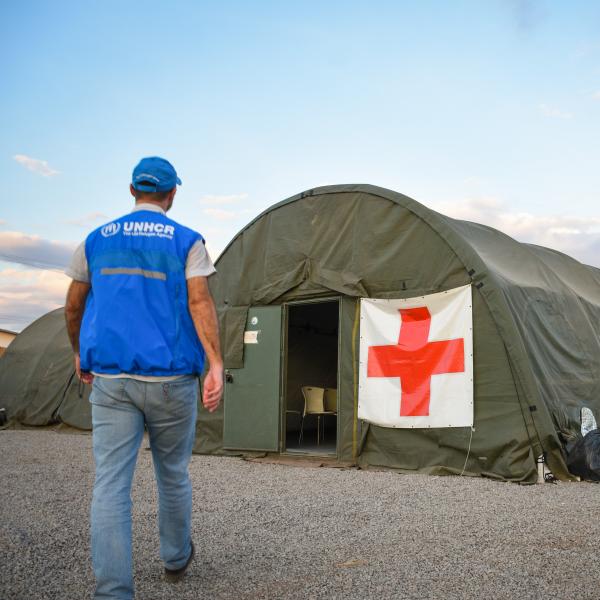UNHCR facilitates refugees’ access to basic health services through camp clinics and local health care providers. Priority health services include emergency medical care for those who have been victims of violence, sexual and reproductive health services, as well as medication for infants and the elderly.
UNHCR also coordinates the implementation of vaccination campaigns to prevent the spread of diseases in oft-overcrowded refugee communities.

During conflicts, when health systems collapse, and people lose access to medical care, preventable diseases and epidemics can devastate communities.
Infectious outbreaks and water-borne diseases are a common threat in camps due to cramped living conditions, and lack of clean water and sanitation facilities. UNHCR works with partners to vaccinate children against infectious diseases such as polio and measles, to significantly reduce infection and mortality rates.

Access to clean water
Access to safe drinking water is crucial to ensure stable public health and hygiene, as well as dignity.
UNHCR's water programs provide safe drinking water and sanitation services to millions of people.
Where access to a water source is remote or difficult, UNHCR digs wells and builds facilities.

Fighting infectious diseases
As the recent COVID-19 crisis has shown us once again, hygiene equipment and accessible health facilities are a prime necessity to prevent the spread of diseases and infections.
UNHCR's efforts to address these risks are relentless, from the implementation of hygiene measures to the treatment of unsafe water.
-
More than 7.62 million health consultations were conducted in over 22 countries
-
41% of water sources managed by UNHCR have been switched to solar-power
-
363,000 jerry cans of water were distributed
